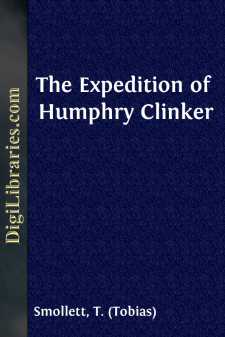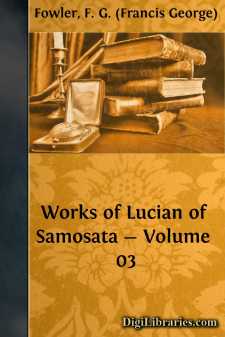Categories
- Antiques & Collectibles 13
- Architecture 36
- Art 48
- Bibles 22
- Biography & Autobiography 813
- Body, Mind & Spirit 142
- Business & Economics 28
- Children's Books 17
- Children's Fiction 14
- Computers 4
- Cooking 94
- Crafts & Hobbies 4
- Drama 346
- Education 46
- Family & Relationships 57
- Fiction 11829
- Games 19
- Gardening 17
- Health & Fitness 34
- History 1377
- House & Home 1
- Humor 147
- Juvenile Fiction 1873
- Juvenile Nonfiction 202
- Language Arts & Disciplines 88
- Law 16
- Literary Collections 686
- Literary Criticism 179
- Mathematics 13
- Medical 41
- Music 40
- Nature 179
- Non-Classifiable 1768
- Performing Arts 7
- Periodicals 1453
- Philosophy 64
- Photography 2
- Poetry 896
- Political Science 203
- Psychology 42
- Reference 154
- Religion 513
- Science 126
- Self-Help 84
- Social Science 81
- Sports & Recreation 34
- Study Aids 3
- Technology & Engineering 59
- Transportation 23
- Travel 463
- True Crime 29
Sort by:
CHAPTER I SPANISH DAYS The dominant people of California have been successively aborigines, conquistadores, monks, the dreamy, romantic, unenergetic peoples of Spain, the roaring melange of Forty-nine, and finally the modern citizens, who are so distinctive that they bid fair to become a subspecies of their own. This modern society has, in its evolution, something unique. To be sure, other countries...
more...
CHAPTER I.GENERAL INFORMATION. Mink are found in nearly all parts of America living along creeks, rivers, lakes and ponds. While strictly speaking they are not a water animal, yet their traveling for food and otherwise is mainly near the water, so that the trapper finds this the best place to set his traps. The mink is fond of fish, rabbit, squirrel, birds, mice, etc. In some sections they eat muskrat,...
more...
by:
Ward Moore
1. I always knew I should write a book. Something to help tired minds lay aside the cares of the day. But I always say you never can tell what's around the corner till you turn it, and everyone has become so accustomed to fantastic occurrences in the last twenty one years that the inspiring and relaxing novel I used to dream about would be today as unreal as Atlantis. Instead, I find I must write...
more...
by:
Various
THE MORAL OF PUNCH. As we hope, gentle public, to pass many happy hours in your society, we think it right that you should know something of our character and intentions. Our title, at a first glance, may have misled you into a belief that we have no other intention than the amusement of a thoughtless crowd, and the collection of pence. We have a higher object. Few of the admirers of our prototype,...
more...
by:
Various
ETHIOPIA From the various circumstances of our day, the impression is powerfully made upon intelligent men in Europe, that some extraordinary change is about to take place in the general condition of mankind. A new ardour of human intercourse seems to be spreading through all nations. Europe has laid aside her perpetual wars, and seems to be assuming a habit of peace. Even France, hitherto the most...
more...
by:
James H. Schmitz
There was, Telzey Amberdon thought, someone besides TT and herself in the garden. Not, of course, Aunt Halet, who was in the house waiting for an early visitor to arrive, and not one of the servants. Someone or something else must be concealed among the thickets of magnificently flowering native Jontarou shrubs about Telzey. She could think of no other way to account for Tick-Tock's spooked...
more...
About five days ago we arrived in London, after an easy journey from Bath; during which, however, we were overturned, and met with some other little incidents, which, had like to have occasioned a misunderstanding betwixt my uncle and aunt; but now, thank God, they are happily reconciled: we live in harmony together, and every day make parties to see the wonders of this vast metropolis, which, however,...
more...
LIFE OF DEMONAX It was in the book of Fate that even this age of ours should not be destitute entirely of noteworthy and memorable men, but produce a body of extraordinary power, and a mind of surpassing wisdom. My allusions are to Sostratus the Boeotian, whom the Greeks called, and believed to be, Heracles; and more particularly to the philosopher Demonax. I saw and marvelled at both of them, and with...
more...
The siege and attempted reduction of Savannah by the combined French and American forces is one of the events of our revolutionary war, upon which our historians care little to dwell. Because it reflects but little glory upon the American arms, and resulted so disastrously to the American cause, its important historic character and connections have been allowed to fade from general sight; and it stands...
more...
CHAPTER I. MR. LARCHER GOES OUT IN THE RAIN The night set in with heavy and unceasing rain, and, though the month was August, winter itself could not have made the streets less inviting than they looked to Thomas Larcher. Having dined at the caterer's in the basement, and got the damp of the afternoon removed from his clothes and dried out of his skin, he stood at his window and gazed down at the...
more...











